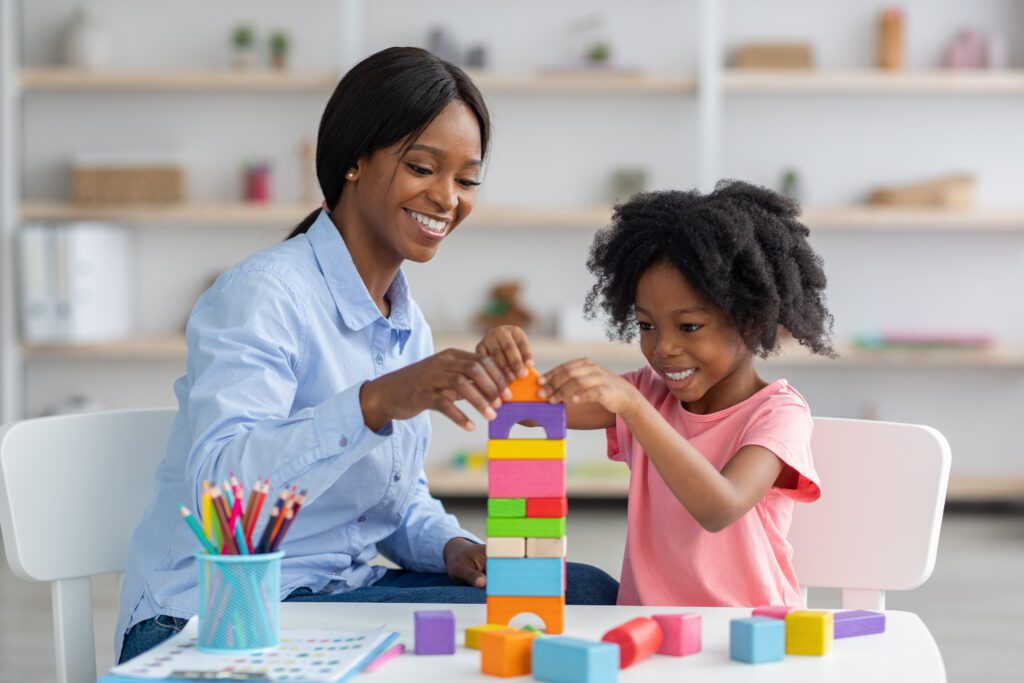If you are a big kid or a little kid, anger shows up in a variety of situations. It can be an indication that we are frustrated and unable to reach our goals and desires, or that we feel a need for self-protection. Anger can also be a key reason that parents and teachers search new solutions for a child’s behaviors. While anger has valid sources and purposes, when it becomes a default response things get complicated. Outbursts and aggressive behaviors can interfere with self-worth and relationships, complicating both the child’s well-being and affecting those around them.
Empirical studies across cultures shows that play therapy helps children learn how to express their anger and emotions in healthier ways, often in as little as 6 sessions play therapy. Child-centered play therapy accomplishes this in some specific ways. Let’s explore some principals of play therapy that support kids experiencing anger.
Anger is an alarm, not a fire. In studying groups of children with strong anger responses, there are significant correlations to a few contexts. This means that certain situations, not personalities, predict difficulties with anger. One such group is children dealing with divorce or separation in their family. Along with increased anxiety and sadness, dealing with divorce results in higher levels of anger. Looking at anger as an indication of a difficult time in a child’s life helps reduce guilt, shame or even identity development around that anger. They are not an angry child, they are expressing the frustration, hurt and lack of control they are experiencing.
Finding a safe space to “vent” helps process the emotion. Play therapy works to provide a contained space where emotions are acceptable and non-threatening. There is no one to offend, no schedule to disrupt, no judgement for the emotions you carry. The physical movement of emotion through the body is completed, there can be recognition of how horrible something is, but I am not the horrible person. If we all think of a difficult time in our childhood, we might remember needing just such a moment to express the unfairness the helplessness of life.
Children tend to seek positive, enjoyable experiences. Children even more than adults do not choose to be “stuck” in negative emotions. In a healthy state kids seek to enjoy life and have fun. It can be assumed that they do not want to stay angry, sad or scared. Play therapy recognizes that expressing confidence in the child’s experience and accepting their solutions allows them to move towards their natural desire to be “okay”. Sometimes that includes helping the family re-adjust, but many times it is just helping the child build and trust his own solutions.
Major traumas require learning how to be safe and protect oneself. Anger is a protective response leading to boundaries and behaviors that support survival. Children in families with high expression of anger, or worse with violence, adopt high levels of anger as a expected response to their world. While this is inconvenient in the classroom or times where the child is deemed “safe”, their patterned response may continue. Play therapy allows a child to explore their fears or memories and gain confidence in their ability to stay safe or find safety in the world. The use of imagination to address these traumas at an early age can reduce or reverse long-term patterns of distrust and anxiety from stressful events.
While anger is a normal and healthy emotion, play therapy can help kids find appropriate ways to express and control their anger. Play therapy is a supportive place for a child to recognize the overwhelming lack of control or frustration they experience in life changes or relationships. It can build closer and more understanding relationships with family and parents by lowering negative interactions and increasing a sense of connection and acceptance.







